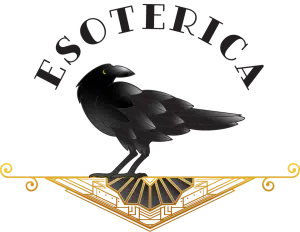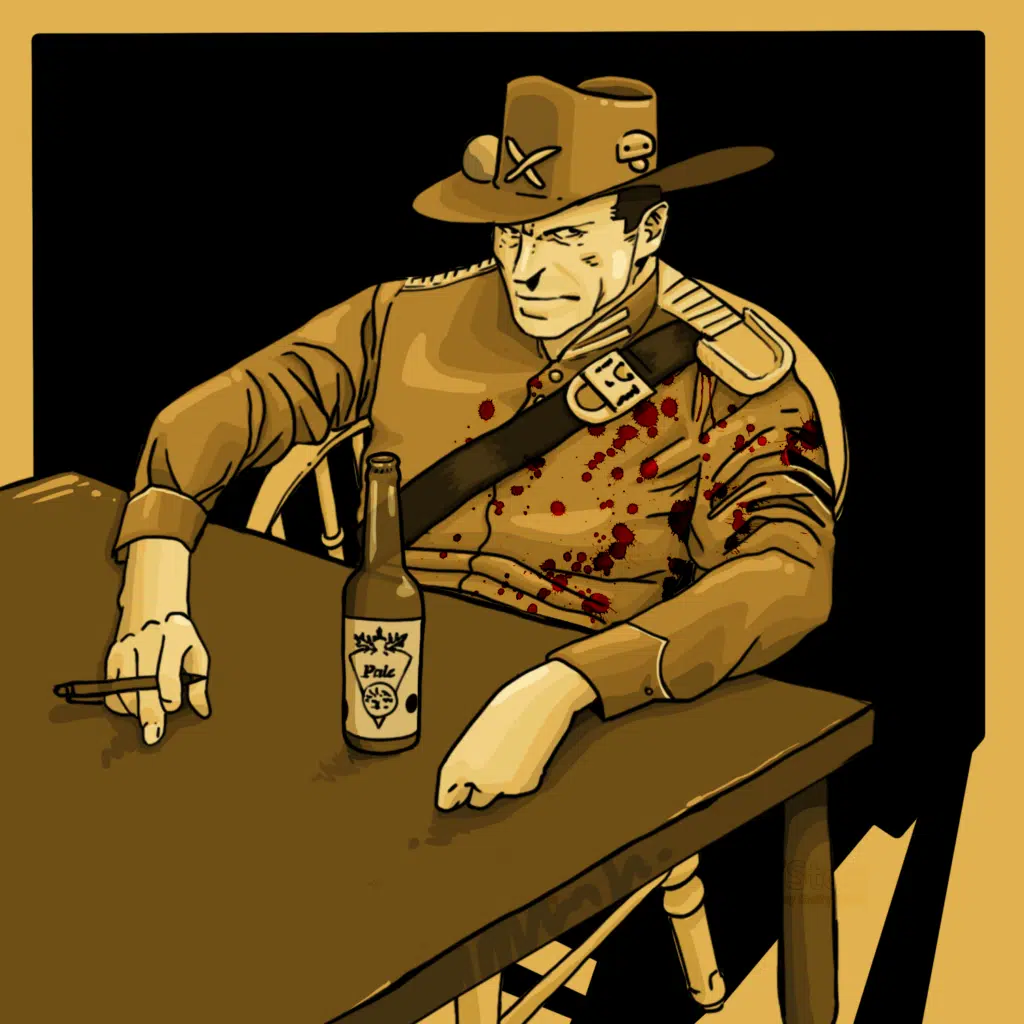By Andrew Clark,
At first, Catherine Davis thought some kids had played a prank. On the front lawn of her Riverdale home were two piles: one a pile of thirty severed hands, the other a pile of thirty severed feet. Seated in a plastic chair at the centre of the lawn was a makeshift dummy sporting a detergent-jug head onto which a bushy black beard had been glued. Its torso was a sweatshirt stuffed with old clothes and its legs a pair of stuffed jeans. The dummy wore an apron with scarlet blotches and one of its hands (a rubber glove) held a hacksaw. Beside it an old hockey stick had been thrust into the ground with a sign that read “Chickamauga” fixed to it.
A half-dozen toy muskets and bayonets were strewn here and there as thin, wispy smoke drifted from underneath the porch. The sounds of gunfire crackled, and heavy artillery boomed. It was almost sunset, and the first trick-or-treaters were making their rounds. Across the street, her neighbour Stephanie stared mutely at the gruesome display as she strung up some last-minute “Happy Halloween” lights across her doorway.
The mystery was solved when Catherine entered the house and found her husband sitting at the kitchen table dressed in the blood-stained uniform of a Union soldier which, she assumed, he had purchased at great cost from the Amazing Party Store. He sat before a half-finished bottle of Black Oak Pale Ale and a copy of The Collected Short Stories of Ambrose Bierce. He had a worn, silvery pen in his hand, a souvenir from when they’d stayed at the Fairmont Montebello; Catherine leaned forward to get a glimpse.
On a yellow lined pad of paper, he’d written:
POSITIVE LOG – THURSDAY OCTOBER 31, 2019
- Not going to die
- Nice breakfast with family. Everyone pleased I’m not going to die.
- Enjoyed turkey sandwich as much as I would have had I still thought I was dying.
- Looking forward to Halloween.
Catherine placed a hand on the counter. It occurred to her that there was an open bottle of white wine in the fridge. Her dark brown hair and jaunty figure suggested a life raised on ski slopes and at summer cottages, but her wan face spoke of hospital visits and frank dialogues with specialists.
“Civil War Distant Cannons and Musket Fire,” her husband said, as if that explained everything. “I got it on Spotify.”
“They sound very realistic.”
““The Battle of Chickamauga. September 19 and 20, 1863,” he continued. “Sunny, warm Georgian autumn days on which a gentle breeze rustled the leaves that dangled from the trees. The soldiers thought Chickamauga meant “River of Death” in Cherokee. One-hundred-and-twenty thousand soldiers fought and of those a little over thirty-four thousand were killed or wounded. There were tens of thousands of amputations.” Hence the hacksaw.
Catherine opened and closed the fridge door; the bottle of white barely had time to whisper her name. “Babe, nobody will let their kids trick-or-treat here.”
“Our kids love it. Other kids will love it. And if their parents don’t like it, they can go fuck themselves.”
“Why do you have to say that, Peter? Why do they have to go fuck themselves? Why is everything a fight? Why can’t they just not appreciate piles of hands and feet on our lawn?”
“Please don’t wreck Halloween, okay. Besides, historically the display is accurate.”
“And what are you supposed to be?”
“Corporal William Records of the 72nd Indiana Infantry.”
“Does it have to be Chickamauga?”
“Why?”
“It’s Indigenous.” Catherine raised her eyebrows at him in admonishment. “People will think we’re appropriating.”
“Hardly, thirty-four-thousand white people were killed and injured at Chickamauga. That’s a win for them.”
“If you are going to say things like that…” She gathered herself. “I’ve never met anyone who liked amusing himself more. No wonder everyone on this street avoids us.”
Silence rose from the tiled floor and struggled against the refrigerator’s humming and the gusts of wind picking up outside. Her husband’s sepia skin was pulled tightly across his thin face. His lips were tinged the colour of soothing green corridors, weathered from too many hours breathing waiting-room air. He took the copy of Ambrose Bierce from the table and held it up like a trophy. From beneath the navy-blue kepi embroidered with gold braids, his strained grey eyes fixed on hers.
“O days when all the world was beautiful and strange,” he said, his voice wrung with distant amber recollection. “When unfamiliar constellations burned in the Southern midnights, and the mocking-bird poured out his heart in the moon-gilded magnolia; when there was something new under a new sun; will your fine, far memories ever cease to lay contrasting pictures athwart the harsher features of this later world, accentuating the ugliness of the longer and tamer life? Is it not strange that the phantoms of a blood-stained period have so airy a grace and look with so tender eyes?—that I recall with difficulty the danger and death and horrors of the time, and without effort all that was gracious and picturesque? Ah, Youth, there is no such wizard as thou! Give me but one touch of thine artist hand upon the dull canvas of the Present; gild for but one moment the drear and somber scenes of to-day, and I will willingly surrender an other life than the one that I should have lost at Chickamauga.”
She recognized the Bierce passage; he had read to her often. “That’s from What I Saw at Shiloh.”
“True,” her husband said. “But I was at Chickamauga.”
Andrew Clark is the Road Sage columnist for The Globe and Mail. He is an award-winning journalist, and author of Governor General Literary Non-Fiction Award-nominated A Keen Soldier: The Execution of Second World War Private Harold Pringle, and Director of the Comedy Writing and Performance program at Humber College in Toronto.

